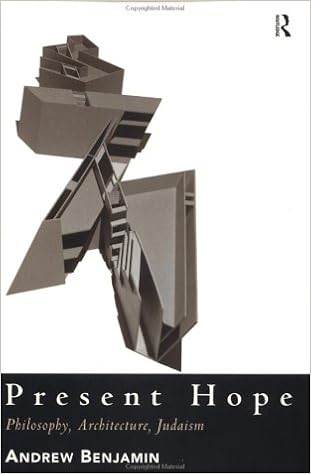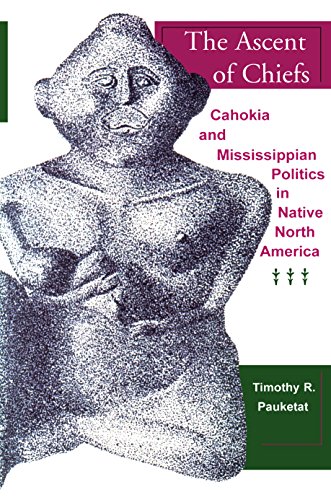
By Andrew Benjamin
An figuring out of what we suggest through the current is likely one of the key matters in literature, philosophy, and tradition at the present time, but additionally essentially the most ignored and misunderstood. current desire develops a desirable philosophical realizing of the current, drawing close this query through discussions of the character of historic time, the philosophy of background, reminiscence, and the function of tragedy.Andrew Benjamin indicates how we misleadingly view the current as easily a fabricated from chronological time, ignoring the function of heritage and reminiscence. consequently, dialogue of what's intended via the current disappears from philosophical difficulty. to attract realization to this absence, Andrew Benjamin introduces the suggestion of wish and asks what this idea can let us know in regards to the present.At the center of the exceptional paintings is an emphasis at the relation among desire and the Jewish culture. via discussions of philosophical responses to the Holocaust, the paintings of Walter Benjamin, Daniel Libeskind's Jewish Museum, and the poetry of Paul Celan, current desire exhibits how we needs to glance past the merely philosophical horizon to appreciate the current we are living in.
Read or Download Present Hope: Philosophy, Architecture, Judaism PDF
Similar science & medicine books
Thomas M. Kane's Theoretical Roots of US Foreign Policy: Machiavelli and PDF
This quantity explores the explanations why American leaders from the 1700s onwards usually undertake guidelines of unilateralism. Thomas M. Kane provides clean reasons for America’s invasion of Iraq and defiance of overseas agreements, which move a lot deeper than traditional reviews of specific presidents to envision the true importance of the September eleven assaults.
New PDF release: The Ascent of Chiefs: Cahokia and Mississippian Politics in
This formidable e-book offers a theoretical clarification of ways prehistoric Cahokia turned a stratified society, and finally the head of local American cultural success north of Mexico. contemplating Cahokia by way of classification fight, Pauketat claims that the political consolidation during this zone of the Mississippi Valley occurred fairly all at once, round A.
New PDF release: Unconscious Crime: Mental Absence and Criminal
A sleepwalking, homicidal nursemaid; a "morally vacant" juvenile poisoner; a guy pushed to arson via a "lesion of the will"; an articulate and poised guy on trial for attack who, whereas undertaking his personal safeguard, undergoes a profound character switch and turns into a wild and delusional "alter. " those everyone is no longer characters from a secret novelist's brilliant mind's eye, yet particularly defendants who have been attempted on the previous Bailey, London's crucial felony court docket, within the mid-nineteenth century.
Download e-book for kindle: Observations and Predictions of Eclipse Times by Early by J.M. Steele
Eclipses have lengthy been obvious as vital celestial phenomena, even if as omens affecting the way forward for kingdoms, or as helpful astronomical occasions to assist in deriving crucial parameters for theories of the movement of the moon and solar. this can be the 1st booklet to gather jointly all almost immediately recognized files of timed eclipse observations and predictions from antiquity to the time of the discovery of the telescope.
- Sparks Will Fly: Benjamin and Heidegger
- Imaginary Futures: From Thinking Machines to the Global Village
- Politics, Gender, and Concepts: Theory and Methodology
- Zur Aktualität von James Coleman: Einleitung in sein Werk
- Muslim Midwives: The Craft of Birthing in the Premodern Middle East
Additional resources for Present Hope: Philosophy, Architecture, Judaism
Example text
The age of the fulfilment of metaphysics—which we descry when we think the basic features of Nietzsche’s metaphysics—prompts us to consider to what extent we find ourselves in the history of being. It also prompts us to consider—prior to finding ourselves—the extent to which we must experience [erfahren müssen] history as the release of being into machination, a release that being itself sends, so as to allow its truth to become essential for man out of man’s belonging to it. (256, 196) For Heidegger, the quality of the present resides in what could be described as a giveness that is always more than the simple instantiation of the given.
12 Before taking it up, it is essential to examine what the distancing—establishing the limits—of philosophical writing is going to entail. These entailments work to construct an important link to Benjamin’s foreword. Moreover, they seem to forge a bridge in regard to presentational method. In both instances they will be connections which distance. ‘Time and Being’ was initially a lecture. Responding to it was therefore intended to be a different exercise than the one demanded by reading. Indeed, because the very practice of reading means that, within it, there is the necessity of being forced to respond to the movement of statements and propositions, it is, as a consequence, inherently problematic (again the difficulty of any immediate reconciliation of interpretation and experience).
One works within the other. What this entails is, first of all, an overcoming of the given ‘indifference’ and stemming contemporary ‘passion’, and, second, thinking being in its differentiation from beings and thus as differentiated from them. The force of the description that presents ‘today’ as the ‘release of being’ allows for the recognition of the current epochality of being, that which being ‘today’ forms and informs, while indicating that it is within the very structure of this presencing, because of what it is, that it becomes possible to consider the conditions of possibility for the thinking of being itself.



